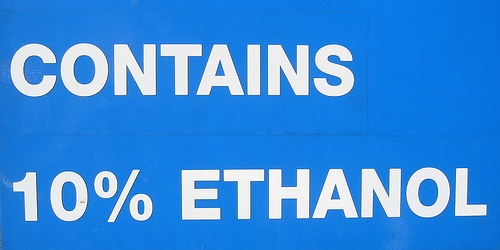
Some gas stations are starting to offer a new alternative to gasoline: E85. Many tout the environmental and economic benefits of E85 over gas, but currently these two fuels are actually very comparable in most aspects.
Regular gasoline producers distill petroleum gas from crude oil, which forms underground after compressing decayed organic matter for millions of years. E85 uses 15 percent petroleum gas, but the other 85 percent of it comes from ethanol, usually derived from corn or similar starchy plants.
According to CNN, E85 gets about 15 percent worse fuel efficiency than regular gas, and while E85 does cost less per gallon on average, consumers will usually spend more on E85 than gas because of E85's lower fuel rating.
The pollution produced by both fuels are nearly identical. When Edmund's tested E85 against gas, they only noticed a difference of less than 1 percent carbon emissions in E85's favor.
As of December 2009, the average price of E85 hovered around $2.30 per gallon, while gas stood at about $2.54 a gallon.
Gasoline supplies will eventually run out, as science considers oil a non-renewable resource due to the long time it takes to form. Ethanol should get more environmentally friendly as producers use more waste and cheaper plant sources to produce it--reducing the amount of greenhouse gases that go into the agricultural production of ethanol.